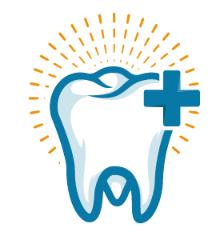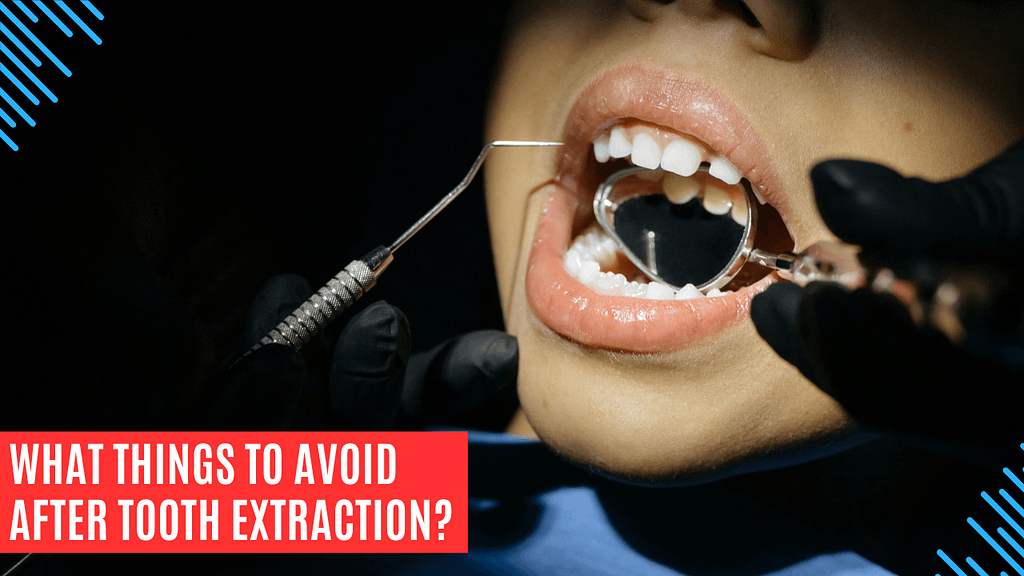Tooth extraction is a painful procedure that requires total care and attention for complete recovery. Following your dentist’s instructions is crucial to prevent further complications.
We usually made mistakes after the extraction procedure, which could exacerbate the situation and slow recovery.
The oral direction will provide thorough guidelines on what to expect after tooth extraction and what things to avoid after extractions tee to speed up the recovery procedure.
What is Tooth Extraction?
The surgical procedure of removing a tooth from its jaw bone socket is known as tooth extraction. Tooth extraction could be required for several reasons, including extensive decay, infection, and crowding.
This is a blatant reminder that any tooth extraction procedure involves incisions to the gums and the bones, so professionals in dentistry must execute such procedures.
What You Should Expect After Extraction?
After a tooth extraction, you can expect some initial bleeding which should subside within a few hours. Additionally, swelling and mild discomfort are common and can be managed with ice packs and pain medication as prescribed. It’s important to follow post-operative care instructions provided by your dentist to ensure proper healing and minimize complications.
Bleeding
It is quite common after teeth extraction. Tooth extraction comes with the experience of some bleeding after the surgery has been completed and a tooth is removed. Your dentist will cover the extraction site with gauze and advise you to bite over it to promote clot formation. You should not consume foods and liquids until the gauze is removed.
Initial Pain and Swelling:
The early signs experienced are mainly pain, soreness, and swelling within the first 24 to 48 hours.
This swelling in your cheek can be reduced if an ice pack is applied occasionally. The prescription painkillers that your dentist has recommended will also assist in pain management.
Six Things to Avoid After Tooth Extraction
The process can be pretty painful, and each patient will heal differently from the next. Certain foods can potentially exacerbate an incision site and cause harm or infection. It is recommended to avoid these things after tooth extraction:
1. Avoid Brushing the Extraction Site
For the first 24 hours, avoid brushing the area around the extraction site to prevent dislodging the clot. After that, brush gently around the site.
Don’t rinse your mouth vigorously. Instead, use a saltwater rinse gently to keep the area clean.
In a cup of warm water, dissolve half a teaspoon of salt and swish it about your mouth.
It’s essential to maintain oral hygiene to avoid illness. Just be gentle and careful around the extraction site.
2. Avoid Touching the Extraction Site
It will feel very strange to feel a space where a tooth used to be, which might tempt you to put your tongue on that area, which is discouraged.
This can pull out a clot that has formed on the socket and expose you to the danger of a dry socket.
3. Avoid Strenuous Activities
The human body requires some time to heal from any surgical procedure. Avoiding strenuous activities after tooth extraction is important to minimize bleeding and promote healing.
Moreover, any kind of physical exertion can increase blood flow to the extraction site, potentially dislodging the blood clot that forms to protect the healing socket. It’s best to rest and limit activities like heavy lifting, exercise, or vigorous movements for at least 24-48 hours after the procedure.
Further, this precaution helps ensure a smoother recovery and reduces the risk of complications such as excessive bleeding or delayed healing.
Strenuous activities can lead to increased blood supply to the area of surgery and increased bleeding time at the extraction area.
4. Dietary Restrictions
Do not use certain crunchy, starchy, sweet, or sticky foods, such as nuts, chips, and hard candies, as they are difficult to chew and could lead to bleeding.
Moreover, avoid hot and spicy foods as they may interfere with clot formation.
Do not take high-fibrous food items, such as hard fruits, salads, or anything spicy, or hard to chew. Include soft diet foods after oral surgery into your diet to fulfill nutritional needs.
5. Alcohol and Caffeine
Alcohol and caffeine halt the healing time and could be a source of potential complications. It’s advisable to avoid alcohol and caffeine for at least the first 24 hours. Alcohol can interfere with blood clot formation, which is crucial for proper healing of the extraction site in dental.
Additionally, Caffeine in coffee, tea, and some sodas, can potentially increase sensitivity and delay healing. So, opting for water or non-caffeinated beverages helps support a smooth recovery process, allowing the extraction site to heal effectively without complications.
Furthermore, always follow your dentist’s post-operative instructions for the best outcomes.
6. Smoking and Tobacco Use
Smoking hinders the effectiveness of the healing process because it cuts off the blood supply to the gums.
Tobacco use is among the main reasons a patient develops a dry socket, a painful state where the blood clot separates or dissolves, making the nerves and bone visible.
Bottom Line
To make your recovery smooth after a tooth extraction, do not smoke; avoid heavy exercises, straws, forced spitting, and touching the extraction site.
You can speed up healing by avoiding these activities and following your dentist’s advice.
Rest more, maintain good oral hygiene, and follow a soft diet for the best outcome possible.
Follow our blog for more content.
FAQs
What is not allowed after tooth extraction?
Avoid smoking, using straws, and vigorous rinsing to prevent complications like dry socket. Moreover, refrain from consuming hard or sticky foods that could disturb the healing process. Follow your dentist’s instructions for a smoother recovery.
What are do’s and don’ts after tooth extraction?
Do’s:
- Dental rest
- Use of Ice packs
- Take prescribed medicines
- Eat Soft food
- Proper hydration
Don’t: Smoking and strenuous activities like playing games using a straw must be avoided. Furthermore, forced spitting out and eating hard meals should not happen to patients undergoing this procedure.
How long should I normally eat following tooth extraction?
Usually, within a week after the first few days, you can start introducing normal foods gradually. In addition, listen to what your dentist has told you, begin on softer foods, and advance towards harder ones after healing has started.
What’s not normal after a tooth extraction?
Severe pain is not normal, and neither is excessive bleeding, which could lead to pus discharge. Further, if there are signs of infection, such as fever and chills, one must contact the dentist immediately before the infection worsens.

